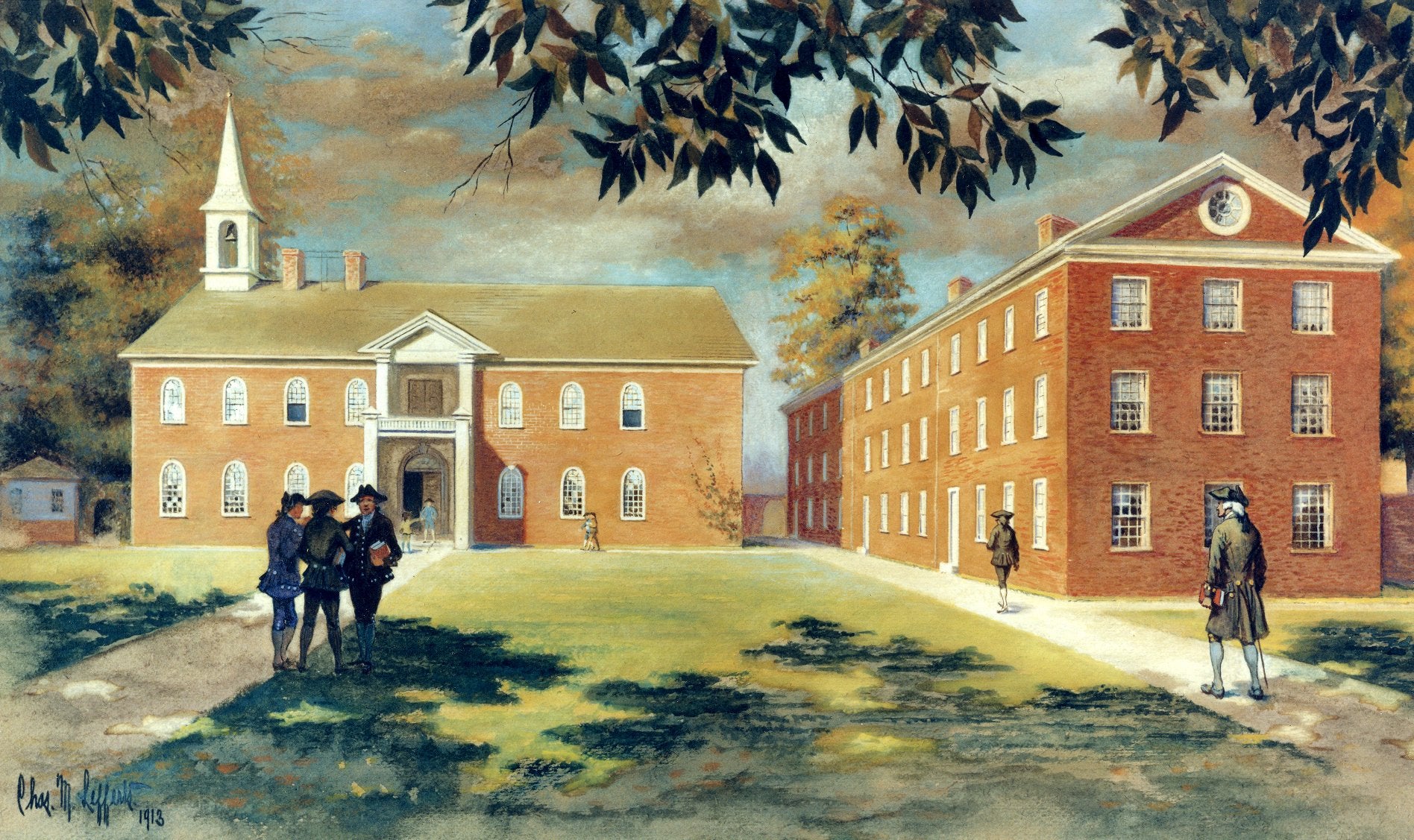John Dickinson was born in Talbot County, Maryland, the son of planter and merchant Samuel Dickinson and Mary Cadwalader. After his family moved to their property in Delaware, he was educated at home until age eighteen, when he began the study of law in the office of John Moland. After further legal study at the Middle Temple, the Inns of Court and Westminster, Dickinson opened a law office in Philadelphia in 1757.
Dickinson began his political career as a member of the Pennsylvania Assembly in 1764 and a member of the Stamp Act Congress in 1765. During this dispute with Britain over import and export agreements, Dickinson drafted the Resolutions of the Stamp Act Congress and wrote an important series of essays, Letters of a Pennsylvania Farmer.
During the Revolution, Dickinson, a moderate opposed to separation from Britain, made every effort to tone down the rhetoric and action of the Continental Congresses in order to encourage reconciliation. Despite his abstention from voting on the Declaration of Independence, he was elected as a member of the second Continental Congress and the Delaware Assembly, and as president of Pennsylvania’s Supreme Executive Council (the equivalent of governor). He helped frame the new Delaware state constitution and, as an essayist and a member of the 1787 Constitutional Convention in Philadelphia, the new United States constitution.
John Dickinson, as Governor of Pennsylvania, served from 1782 to 1785 as an ex officio member and president of the board of trustees of the University of the State of Pennsylvania (now the University of Pennsylvania).

